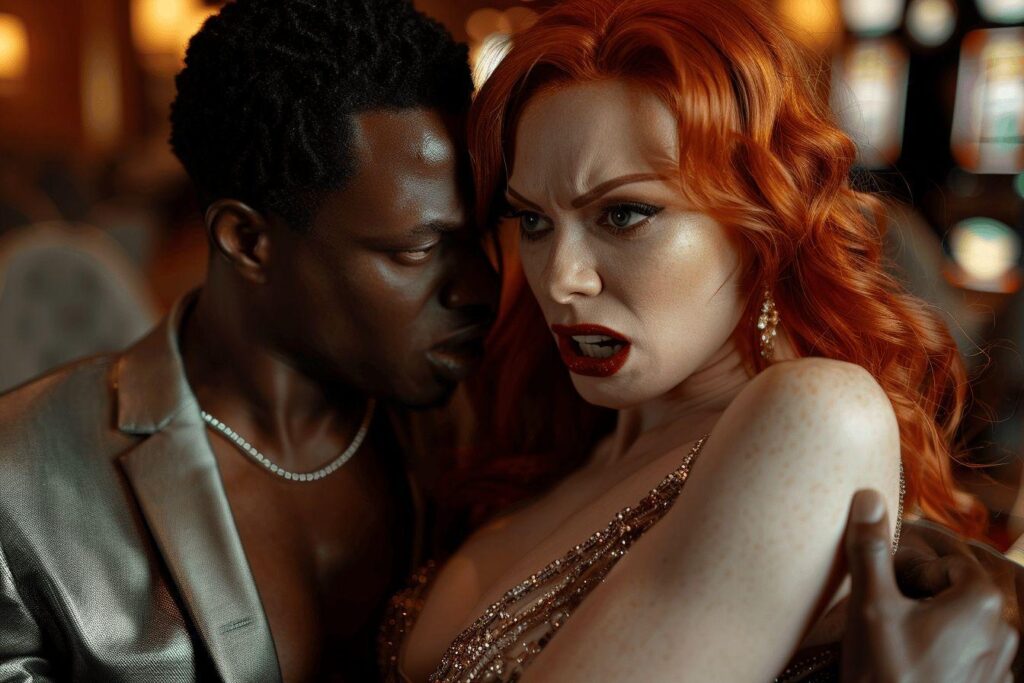Martin Scorsese’s 1995 masterpiece “Casino” portrays the rise and fall of key figures in Las Vegas’ gambling world during the 1970s and 1980s. The film follows Sam “Ace” Rothstein (Robert De Niro), a gambling expert who runs the fictional Tangiers Casino for the Chicago mob. His wife Ginger McKenna (Sharon Stone) is a former hustler whose beauty captivates Rothstein, while Nicky Santoro (Joe Pesci) serves as the mob’s violent enforcer. Based on real events in Vegas history, one relationship particularly drives the narrative’s tragic downfall: the affair between Ginger and Nicky. This betrayal creates ripples affecting every character’s fate and ultimately contributes to the mob’s expulsion from Las Vegas.
The confirmed affair: evidence from the movie and real life
On-screen confirmation
The affair between Ginger and Nicky in Casino’s dramatic narrative is explicitly confirmed during several pivotal scenes. Most notably, during an intense confrontation with police present, Ginger openly admits to sleeping with Nicky when Ace accuses her of the betrayal. The cinematography emphasizes this moment with tight camera angles capturing the raw emotions across De Niro’s face. FBI surveillance photos showing Ginger kissing Nicky become crucial evidence against the mob operation, further cementing their relationship on screen.
Their affair develops progressively as Ginger’s marriage to Ace deteriorates. Following heated arguments with her husband about money and custody of their daughter, Ginger increasingly turns to Nicky for support. Their shared dialogue about how “Ace has changed” reveals their growing bond, with the film using Dutch angles during phone conversations to visually represent the destabilization of all relationships involved.
Real-life basis
The affair portrayed in Scorsese’s film mirrors actual events. Tony Spilotro (the real-life Nicky) truly had an affair with Geri Rosenthal (the real Ginger), wife of Frank “Lefty” Rosenthal (the real Ace). This real-world betrayal had deadly consequences. During the 2007 Operation Family Secrets trial, Nicholas Calabrese testified that mob hitman John Fecarotta revealed Spilotro was targeted partially because of his relationship with Rosenthal’s wife. The Chicago power structure considered this violation serious enough to warrant Spilotro’s eventual murder, demonstrating how the mob valued certain codes above others.
| Movie Character | Real Person | Outcome |
|---|---|---|
| Sam “Ace” Rothstein | Frank “Lefty” Rosenthal | Survived, moved to Florida |
| Ginger McKenna | Geri McGee | Died of drug overdose |
| Nicky Santoro | Tony Spilotro | Murdered by mob associates |
The affair’s consequences: breaking the mob code
Violation of trust
Within the mob’s criminal hierarchy, certain transgressions were considered worse than others. The Chicago bosses tolerated violence, skimming casino profits and money laundering, but sleeping with another made man’s wife crossed an inviolable line. This code violation affected a 35-year friendship between Ace and Nicky, turning childhood bonds into bitter enmity.
Test audiences reportedly reacted with horror to scenes between Pesci and Stone, finding their dual betrayal of De Niro’s character more disturbing than explicit violence. This reaction underscores how effectively the film portrayed this particular violation as more significant than other criminal activities.
Downfall and destruction
The affair catalyzed a chain of catastrophic events leading to everyone’s downfall:
- Ginger requests Nicky kill Ace, which he angrily refuses despite their deteriorating relationship
- Nicky violently attacks Ginger after she confronts him, throwing her down stairs and out of his restaurant
- The FBI documentation of their relationship contributes to building a case against the entire operation
- Ginger ultimately dies from a heroin overdose in Los Angeles
- Nicky and his brother Dominick are beaten with baseball bats and buried alive in a cornfield
This betrayal ultimately contributed to the mob’s expulsion from Las Vegas, ending an era of organized crime control over the casino industry. The character tragedy extends beyond personal relationships to represent the larger collapse of mob power in American gambling’s legitimate transformation.


